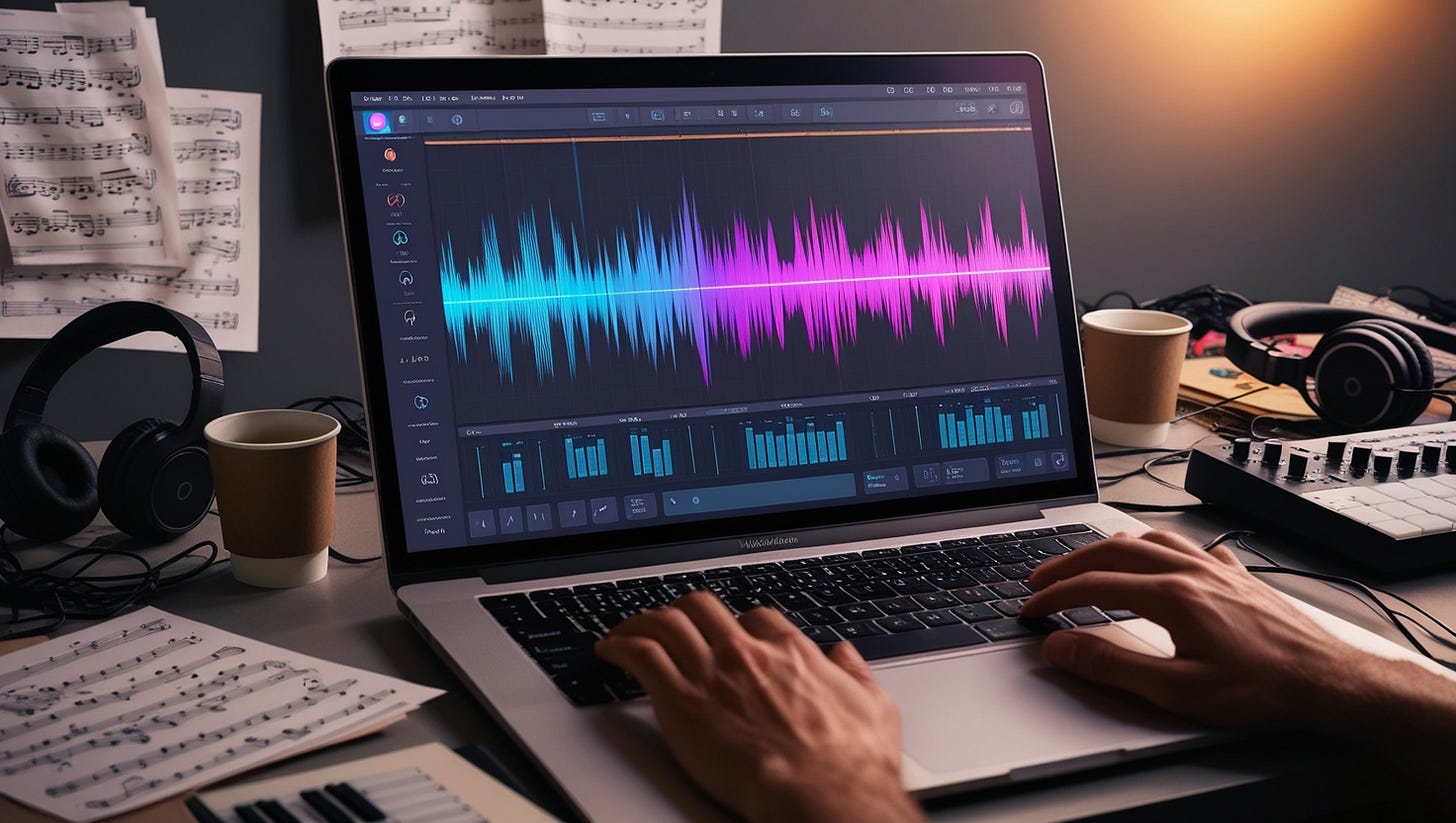How to Monetize AI Music Up to $10M (And Stay Out of Jail)
Breaking down the most unusual case for our newsletter and creating music with AI.
Hi!
I found another perfect approach for a side hustle. It's this: We generate hundreds of music tracks using AI, upload them to different streaming platforms, recruit some bots, and make over $10M in royalties over a few years! Sounds good, right?
Technically, there are a couple of other moments where we get arrested by the FBI and indicted, threatening 20 years in jail, but we'll deal with that later.
Okay, you certainly shouldn't do that. I mean the crime, not the music generation. In fact, we will talk about creating and monetizing tracks (only legally) with AI today. And we'll also discuss whether crime can be used as a case study for creators.
Criminal Case as a Case Study for Creators?
Well, I see an ethical problem here.
On the one hand, when we choose creators, we try to take those who can boast of results. And given that we're talking about new kinds of work and AI entrepreneurship here, the most telling results are revenue. Our case study today has quite solid results.
At the same time, I do not want to give the impression that we condone scammers and criminals. We condemn the breaking of laws and the use of platform rules to make illegal profits. So, let's treat the case below as a compelling story that demonstrates the impressive capabilities of AI and modern progress.
Keep your mailbox updated with practical knowledge & key news from the AI industry!
Meet Michael Smith, a 52-year-old musician from North Carolina. His lawsuit, filed in U.S. District Court in New York, alleges that between 2017 and this year, he earned more than $10M by uploading generated music to services like Spotify, Amazon Music, Apple Music, and YouTube Music. The scheme worked quite simply.
The songwriter receives small royalty payments when a song is played on a streaming platform. Smith realized that he couldn't succeed with honest work, so he focused on quantity rather than quality. By automating the track generation process, he created and uploaded 661,440 tracks per day.
Smith created randomly names for the AI-generated music to make it look legitimate. Fake song names taken from an alphabetized list included Zygotic Lanie, Zygotic Washstands, and Zyme Bedewing, while fake artists were given names like Calliope Bloom, Callous Humane, and Calvinistic Dust. Although the tracks received an extremely small number of listens, it was enough to generate a six-figure annual income.
The indictment states that the average fee per stream was half a cent, which meant daily royalties brought Smith an approach of $3,307.20, monthly royalties totaled $99,216, and annual royalties totaled $1,207,128. Considering that our enthusiast has been in the business for over eight years, he has made more than $10M.
According to U.S. Attorney Damian Williams, Smith stole millions in royalties that should have been paid to musicians, songwriters, and other rights holders whose songs were legitimately streamed.
For now, law enforcement officials call the case the first of its kind involving artificially inflated music streaming. Smith is being charged with wire fraud conspiracy, wire fraud and money laundering conspiracy. Each count carries a maximum sentence of 20 years in prison.
And that's an example of how AI-generated content shouldn't be monetized. But that doesn't mean there aren't perfectly legal analogs to this business. Let's look at how it works.
They probably won't be as effective, but at least you won't have problems with G-Men.



